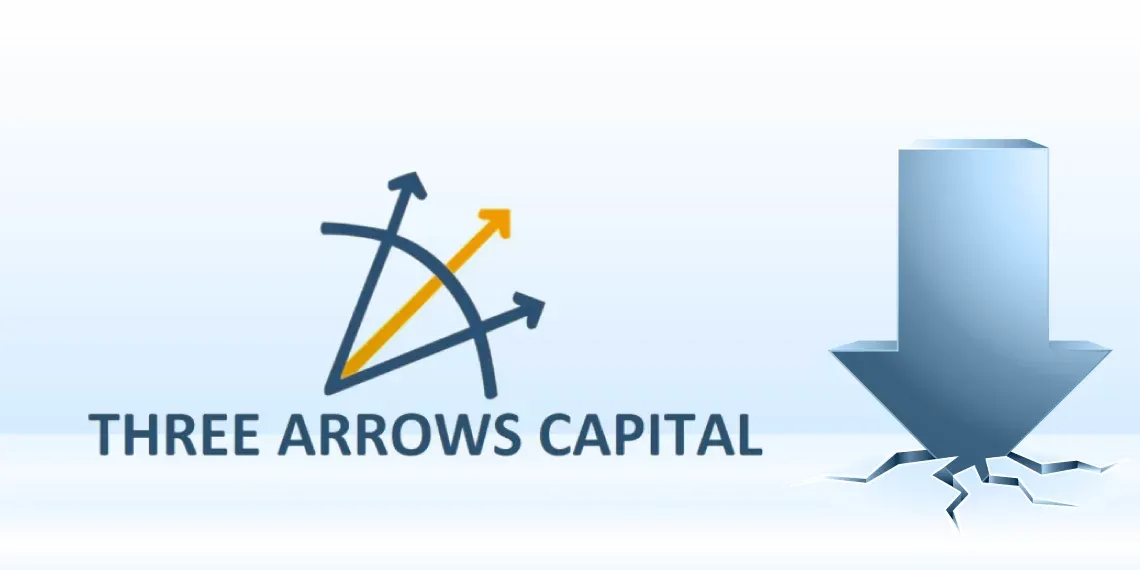Three reasons, in their opinion, why 3 Arrows Capital failed

The creators of Three Arrows Capital (3AC), Su Zhu and Kyle Davies claim that at least three significant issues contributed to the fund's demise.
The founders spoke to Bloomberg after five weeks of hiding out, claiming that they had received death threats. Bloomberg described the pair as "at times apologetic and at others defiant," and made notice of their "efforts [...] to shift culpability."
"The finishing nails for 3AC"
The founders determined three key factors that contributed to 3AC's demise: the trades in the Grayscale Bitcoin Trust (GBTC), the closeness to Terra's founder, and investment in LUNA, as well as the falling value of bitcoin (BTC).
Davies and Zhu admitted to suffering significant losses from transactions involving Terra's LUNA and the abandoned algorithmic stablecoin TerraUSD, saying that,
What we overlooked, according to Zhu, was that Luna had the potential to drop to effectively zero in a matter of days, which would trigger a credit crunch across the sector and put substantial pressure on all of our illiquid investments.
He also claimed that the company might have been too close to Do Kwon, the founder of Terra.
Zhu claimed that lenders were "comfortable" with 3AC's financial situation and allowed them to continue trading "as if nothing was wrong," which allowed the fund to continue borrowing from significant digital-asset lenders and wealthy investors. However, many of these loans only required a small amount of collateral, according to court documents cited by Bloomberg.
According to Zhu, the corporation "kept doing business as usual" after that.
Bitcoin's decline from $30,000 to $20,000 was really terrible for us, you know. And that was in, that ultimately served as sort of the clincher.
Grayscale, a major player in digital assets, entered the fray last. By transferring BTC to the trust, the company permitted large investors like 3AC to buy shares directly and subsequently resell them on the secondary market. According to Bloomberg, 3AC held the largest investment in GBTC at the time of its most recent disclosure at the end of 2020, with a USD 1 billion position.
But because the shares acquired directly from Grayscale had to be held for periods of six months at a time and because of increased competition, the price of GBTC began to decline in 2021, and by 2022, a share's value had fallen below that of the BTC it was backed by (a condition known as "discount"). As a result, the so-called GBTC arbitrage trade failed.
In-depth loss
The company's founders asserted that they suffered "severe loss" and denied taking money out of the business.
"People could think we're foolish. They can label us as foolish or naive. I'll agree to that. Maybe," Zhu reportedly said. But they're going to claim that I misappropriated money during the most recent period, during which I really contributed more of my own money. That is untrue.
Zhu said that the boat was purchased "over a year ago," that they do not lead an opulent lifestyle, and that these accusations are a part of a smear campaign that goes along with these negative events. They also addressed the claims that a USD 50 million payment was made on a yacht prior to the company's demise.
In either scenario, the fund's creditors assert that they are due more than 2.8 billion dollars in unsecured claims, a sum that is anticipated to "increase dramatically." Assets worth at least USD 40 million have been taken into the jurisdiction of liquidators managing the company's bankruptcy. Contrary to what the advisers claimed, the two founders assert that they have been in contact with the advisers overseeing the company's liquidation "from day one."
22/07/2022 Updated Portfolio pic.twitter.com/jJI7vIBkCf
— Three Arrows Capital (@3arrowscap) July 22, 2022